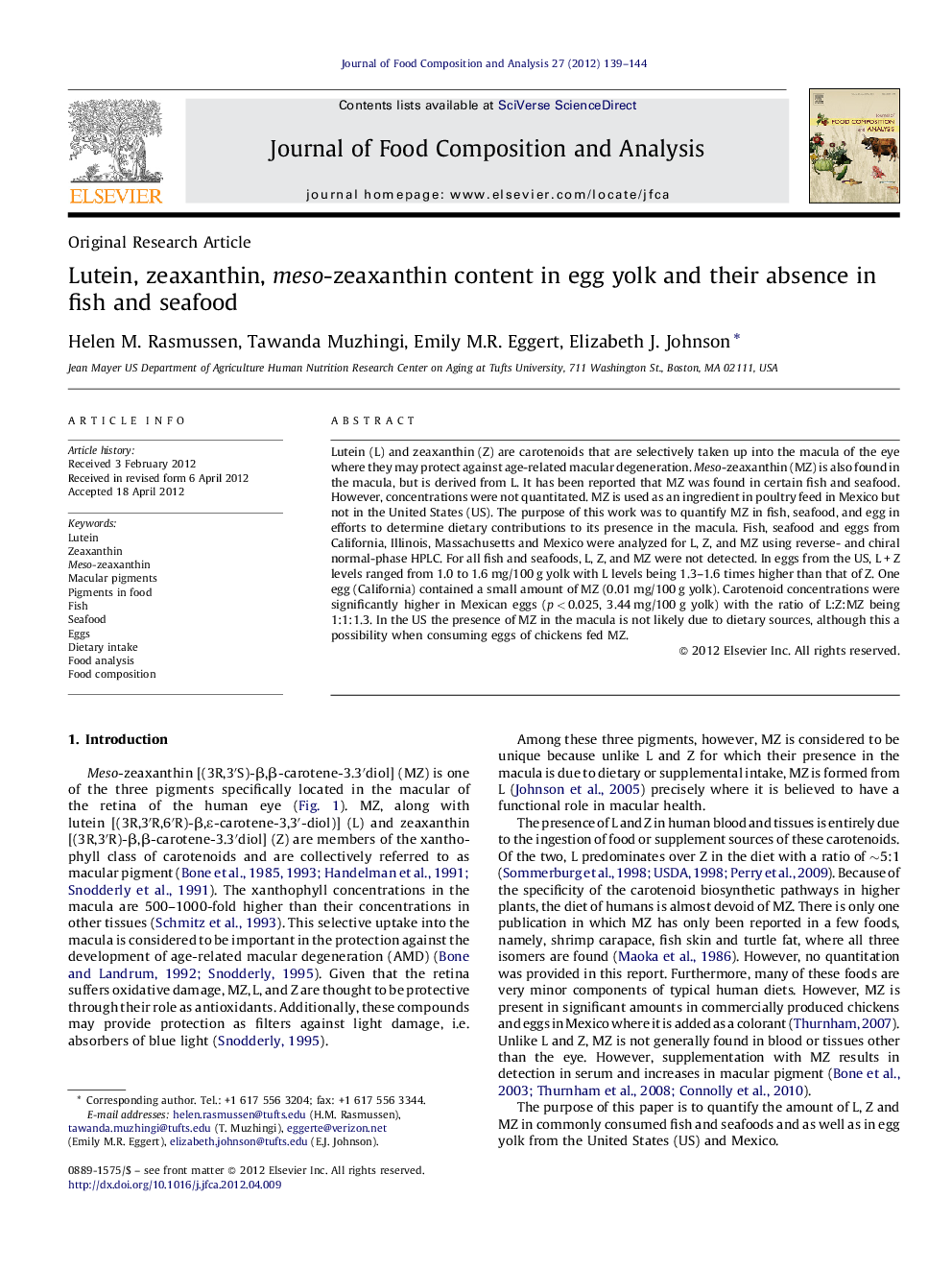| کد مقاله | کد نشریه | سال انتشار | مقاله انگلیسی | نسخه تمام متن |
|---|---|---|---|---|
| 1218444 | 967604 | 2012 | 6 صفحه PDF | دانلود رایگان |

Lutein (L) and zeaxanthin (Z) are carotenoids that are selectively taken up into the macula of the eye where they may protect against age-related macular degeneration. Meso-zeaxanthin (MZ) is also found in the macula, but is derived from L. It has been reported that MZ was found in certain fish and seafood. However, concentrations were not quantitated. MZ is used as an ingredient in poultry feed in Mexico but not in the United States (US). The purpose of this work was to quantify MZ in fish, seafood, and egg in efforts to determine dietary contributions to its presence in the macula. Fish, seafood and eggs from California, Illinois, Massachusetts and Mexico were analyzed for L, Z, and MZ using reverse- and chiral normal-phase HPLC. For all fish and seafoods, L, Z, and MZ were not detected. In eggs from the US, L + Z levels ranged from 1.0 to 1.6 mg/100 g yolk with L levels being 1.3–1.6 times higher than that of Z. One egg (California) contained a small amount of MZ (0.01 mg/100 g yolk). Carotenoid concentrations were significantly higher in Mexican eggs (p < 0.025, 3.44 mg/100 g yolk) with the ratio of L:Z:MZ being 1:1:1.3. In the US the presence of MZ in the macula is not likely due to dietary sources, although this a possibility when consuming eggs of chickens fed MZ.
► Lutein, zeaxanthin, meso-zeaxanthin absent in commonly consumed fish, seafoods.
► Levels of lutein and zeaxanthin in egg yolk can vary with geographic location.
► Meso-zeaxanthin in not commonly found in eggs from the US.
► Meso-zeaxanthin is present in eggs of chickens fed this carotenoid.
Journal: Journal of Food Composition and Analysis - Volume 27, Issue 2, September 2012, Pages 139–144